
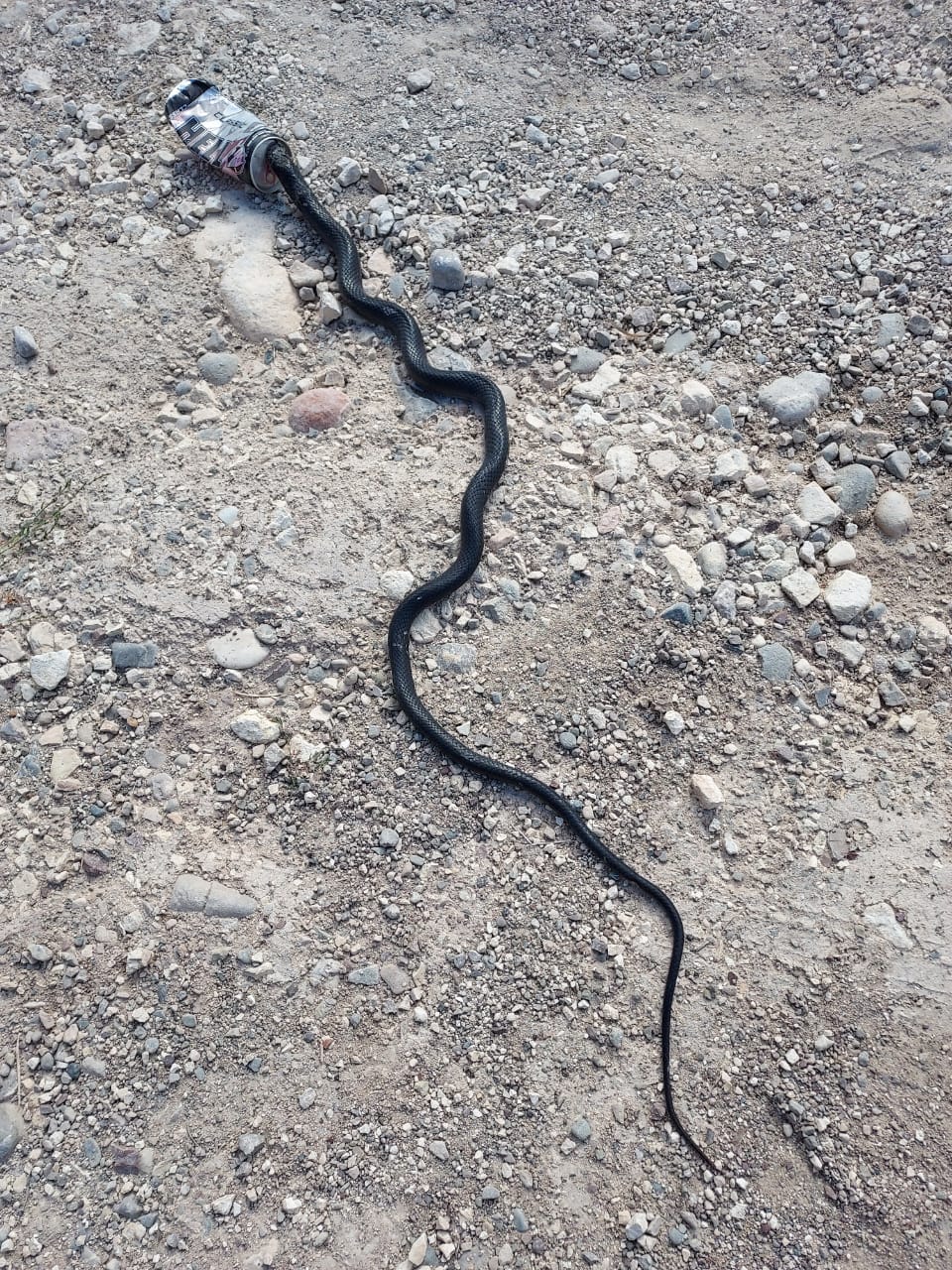
Permaculture Principle six is to Create No Waste. Living in our culture, that's difficult. Everything comes in packaging, most packaging is plastic. By default, waste is inevitable as most packaging cannot be reused. Despite efforts by Friends of the Earth and other NGOs which run workshops in schools on recycling and composting as well as co-ordinating clean-ups, Cyprus is notorious in the European Union for being fined every year for lack of waste management policies and implementation.
I like to walk. Usually around 5 kilometres a day, and most frequently between home outside Nikokleia village and the sea. And like most other people who walk in this country, I became inured to the endless garbage dropped casually beside the road or in beauty spots, or deliberately trucked to and dumped in discreet riverbeds or under motorway bridges.
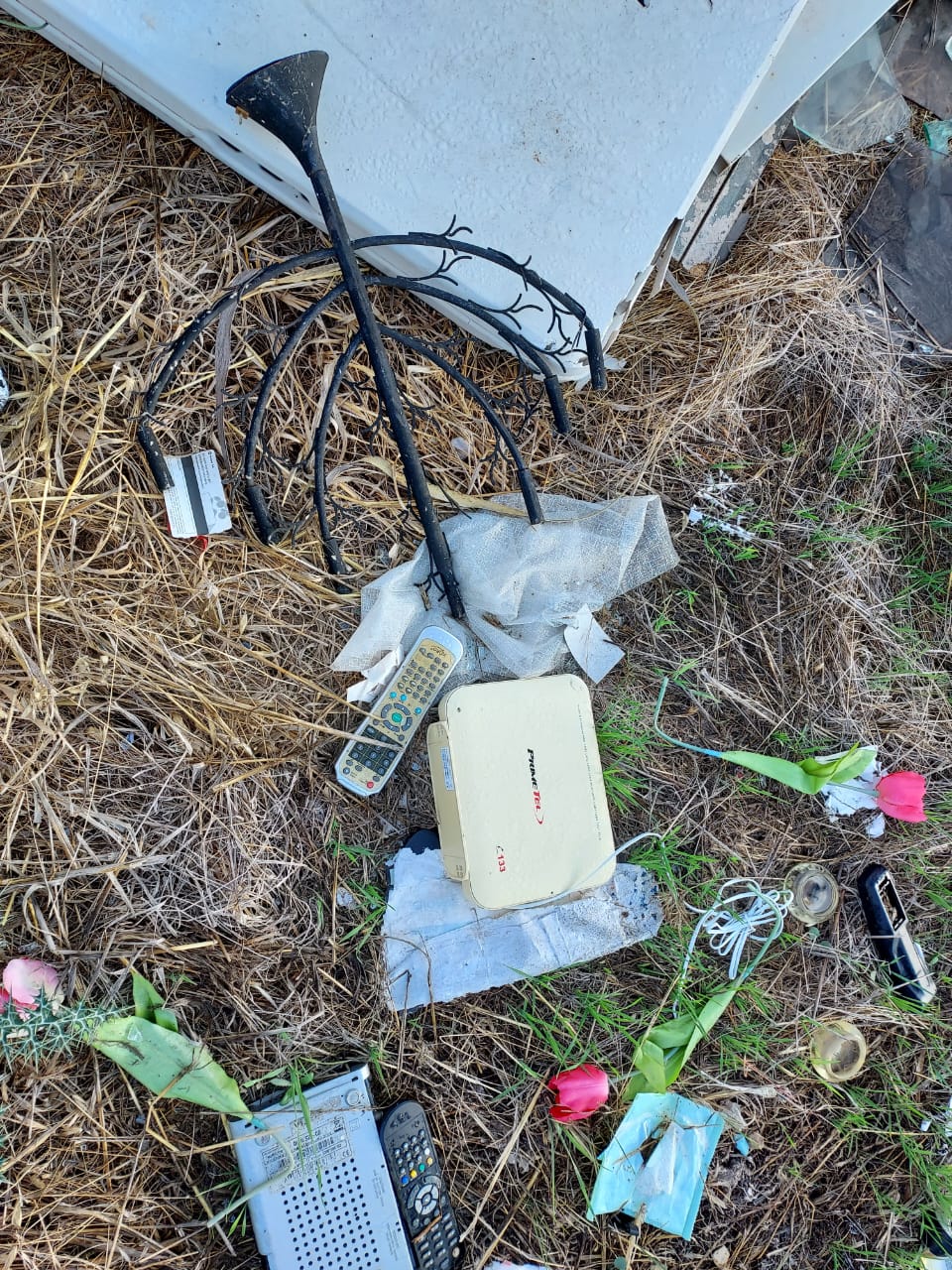
Not that it didn’t hurt my heart every time I passed a discarded plastic bottle, a snowdrift of wet wipes, a tossed bag with a McDonalds or KFC logo, or one of an endless stream of coffee cups; but I believed that there was nothing I could do about it.
During lockdown I joined a local group of volunteers organised by a neighbour and including a range of nationalities from Latvia to Cameroon that devoted one morning a month to cleanups around Asprokremnos Dam and of local beaches. But lockdown ended, the group drifted apart, and the garbage keeps piling up.
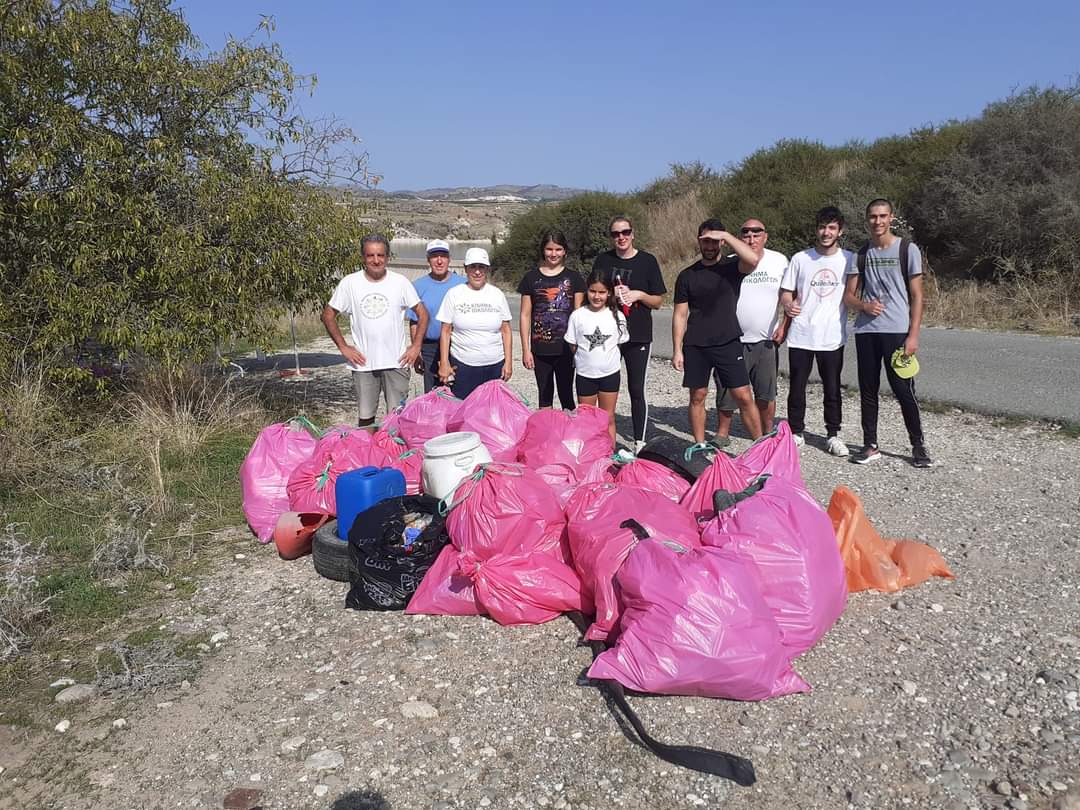
Last month two things happened that made me realise I can do something about it after all — no matter how small. First I met Jake the Snake. Then, the ladies from Cans For Kids.
I met Jake while I was walking between Achelia and Agia Varvara. After pointing my phone overhead to get a picture of the massive motorway spans vaulting across the valley, I looked down at my feet.
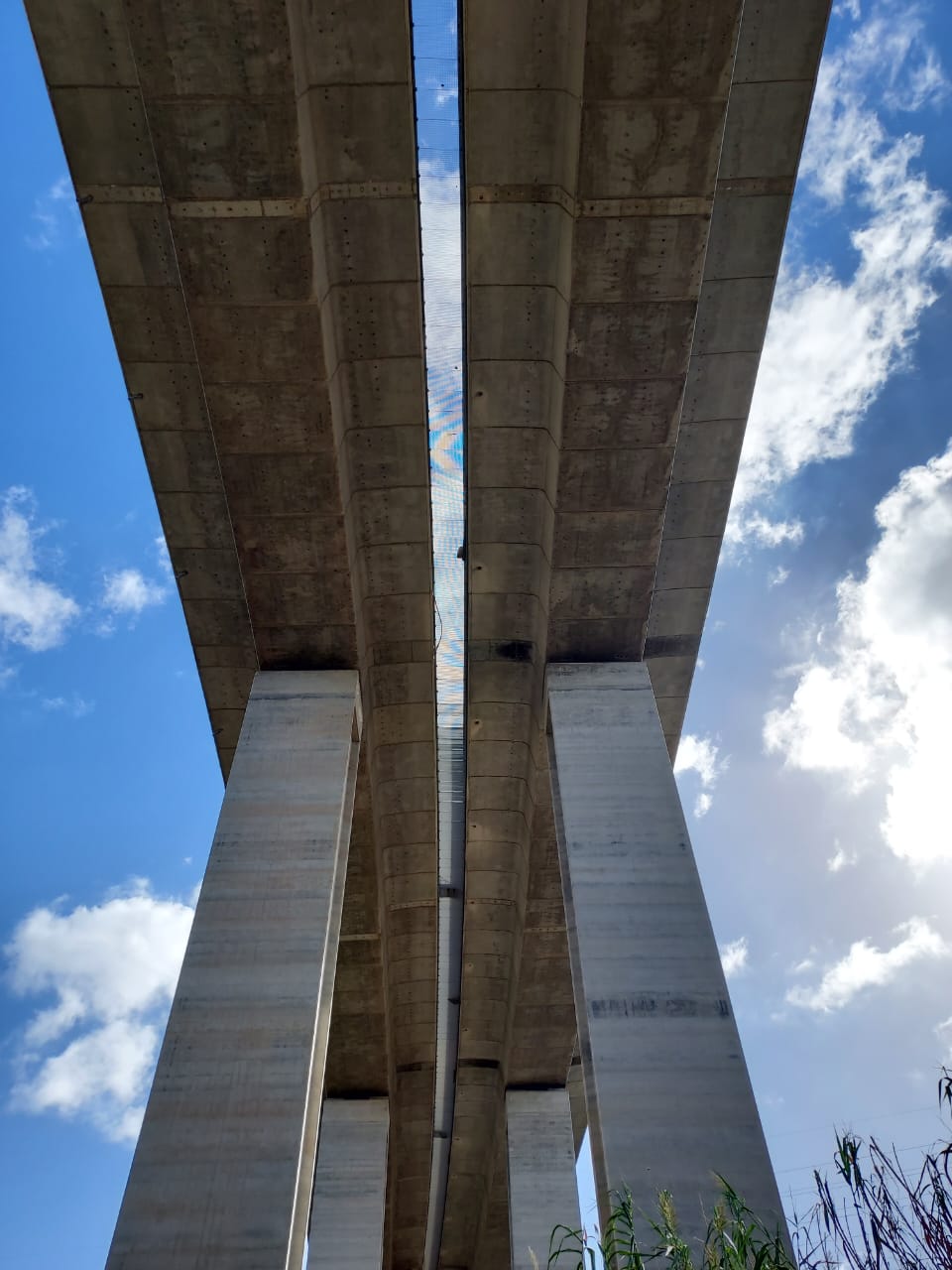

I thought Jake was dead. But when I touched him (we’ll assume masculine for the sake of the rhyme), he writhed and I realised that I could not leave a fellow being with his head stuck in a can. So I picked him up, called home to make sure that my son would be around to help, and walked the two kilometres or so back to the car.
Together, Zenon and I extracted Jake from Hell. Not before he bit me — yes, they bite, and Jake drew blood, but they are non-venomous so I can bask in the knowledge that I am the only member of my family to be bitten by a snake. And it gave Zenon and me great joy to see him slither furiously away under the outside stairs — where I caught a glimpse of him (or I would like to believe it was him) yesterday. I hope that he lives a long and happy life with us, and that he doesn’t miss his previous existence in Agia Varvara.
The following weekend, I took our recycling to the collection point in Anarita. (I am cynical about recycling here, but I do it because I do not want to NOT do it and then to hear someone in authority say: “We tried recycling in Cyprus, but people just didn’t want to get behind it…”) At the bins I met three or four cheerful English and Scots women bagging up aluminium tins from the Cans For Kids cage. I helped them briefly, and they offered me a chance to volunteer for next time. Although I refused, an idea took hold.
Cans For Kids has been operating since 1990, when founder Rosie Charalambous’ son was diagnosed with cancer. Rosie realised that Makarios Hospital’s children’s cancer ward lacked the potentially lifesaving equipment found in other countries’ hospitals, and following the death of her little boy began a drive that continues today. So far the charity has raised more than a quarter of a million euros for medical equipment for critically ill children. To learn more, visit the website at www.cansforkids.org
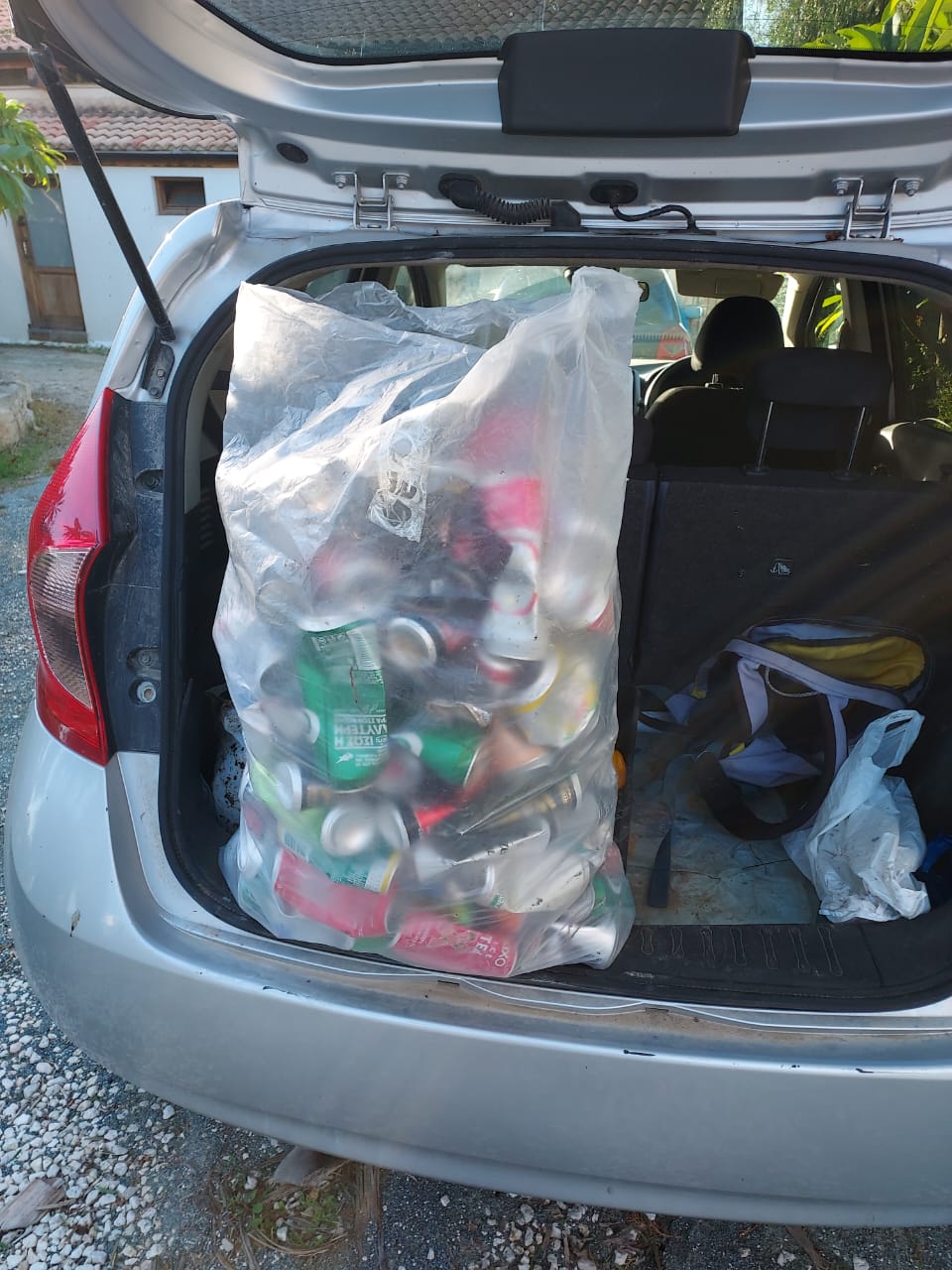
On my walks for the last week, I have filled my knapsack and plastic bags (always plenty of them lying around!) with the aluminium and steel cans I come across. I leave the other garbage, as painful as it is: if I started picking up plastic, I would never stop… In fact this is where I stopped last week, under the motorway bridge between Mandria and Kouklia, not 30 metres from a sign warning of a fine for littering…
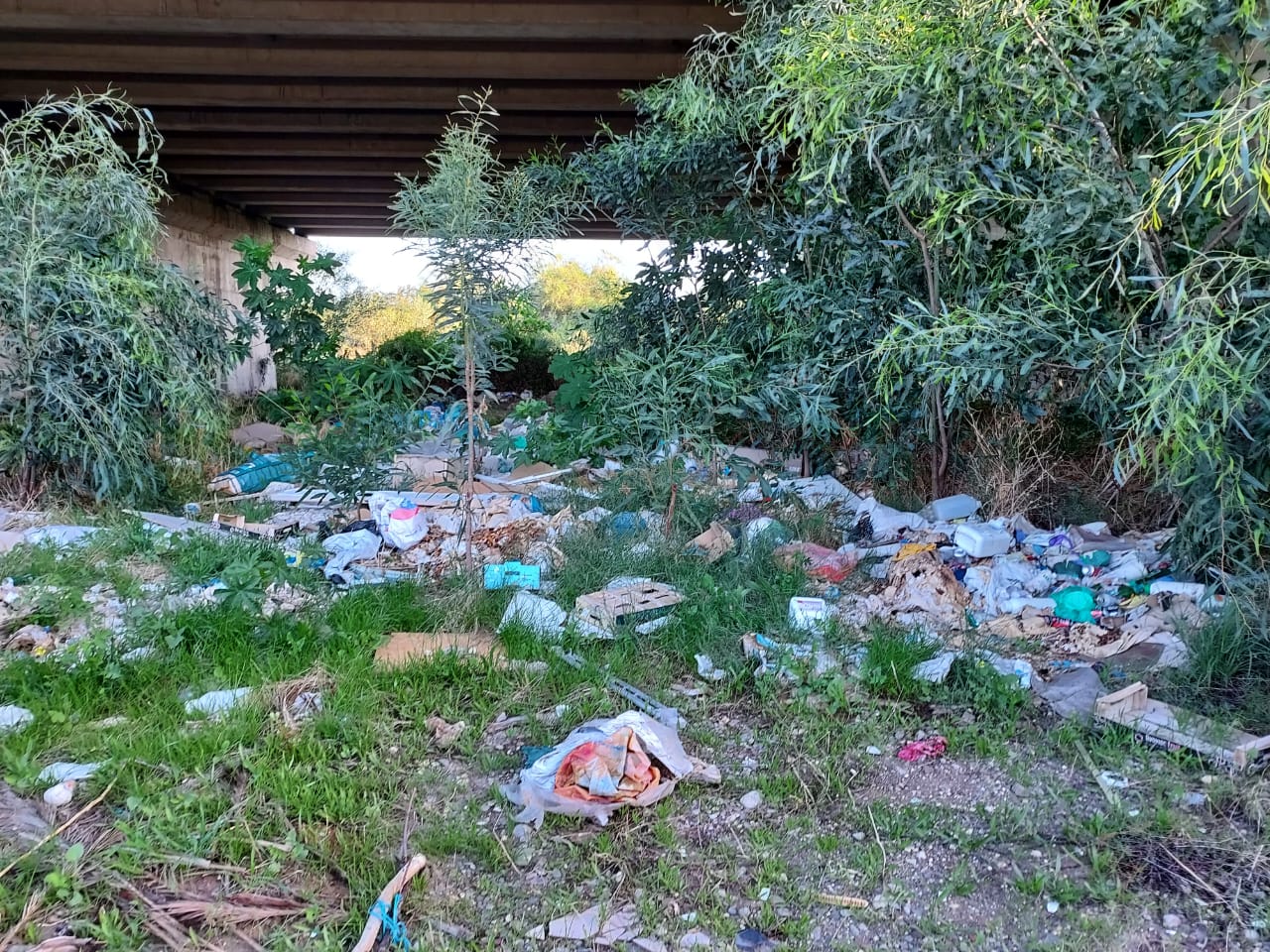
Words fail me. I picked up cans, some Carlsberg and Keo bottles, and some of the vegetables for my chickens and compost worms, as well as scoring some panes of glass for the roof of my mini-greenhouse. But you need a truck, or ten, or one hundred to tackle the fly-tipping in this country, and then, as Husband pointed out, somebody would just come and dump another load.
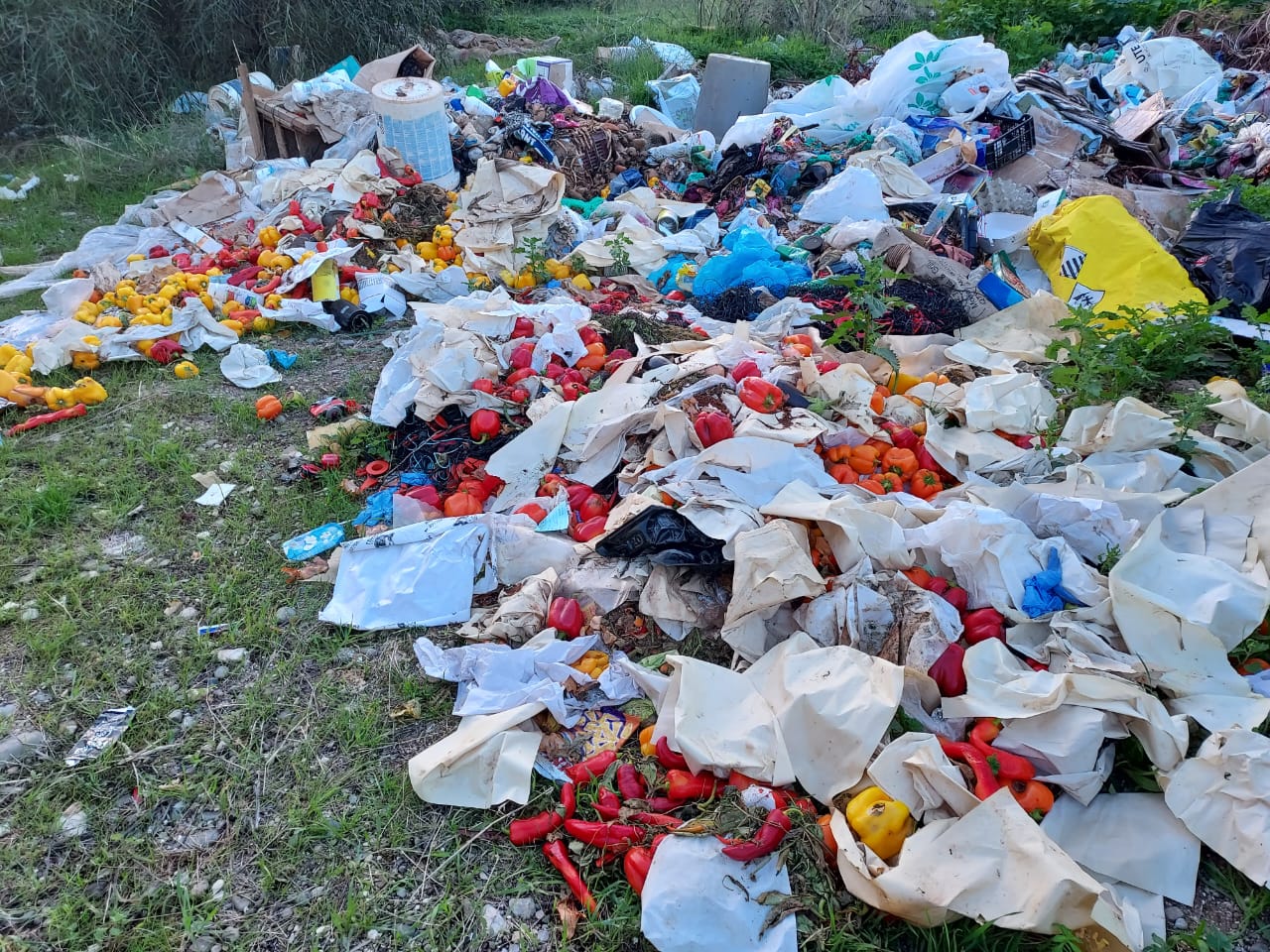
But I will not look away, and however pitiful my daily can clean-up may seem compared with the mountain of trash beside it, both sick children and the Cyprus countryside benefit.
There are other ways that I reduce waste. I compost. Kitchen scraps go into a bin which either goes to the chickens or the worms. I have a good relationship with a greengrocer who collects the cut-offs from his vegetables and unsaleable stock, and gives them to me so that they don't end up in landfill. I reuse plastic containers, and refuse to buy new ones -- even taking clean ones to the supermarket or deli for refills.
Will you join me? Save your kitchen scraps -- no meat or dairy -- and either compost them yourself or arrange a weekly meeting with me so that I can collect and add them to the chicken and worm bins. Bring me your (clean, please!) jars and plastic containers. I will take and donate your aluminium and steel cans for Cans For Kids — or you can take them yourself: just check the website for what they can accept and the location of the drop-off points, as well as good information on WHY aluminium recycling is a positive thing to do, and the contributions that the charity has made over the last three decades.
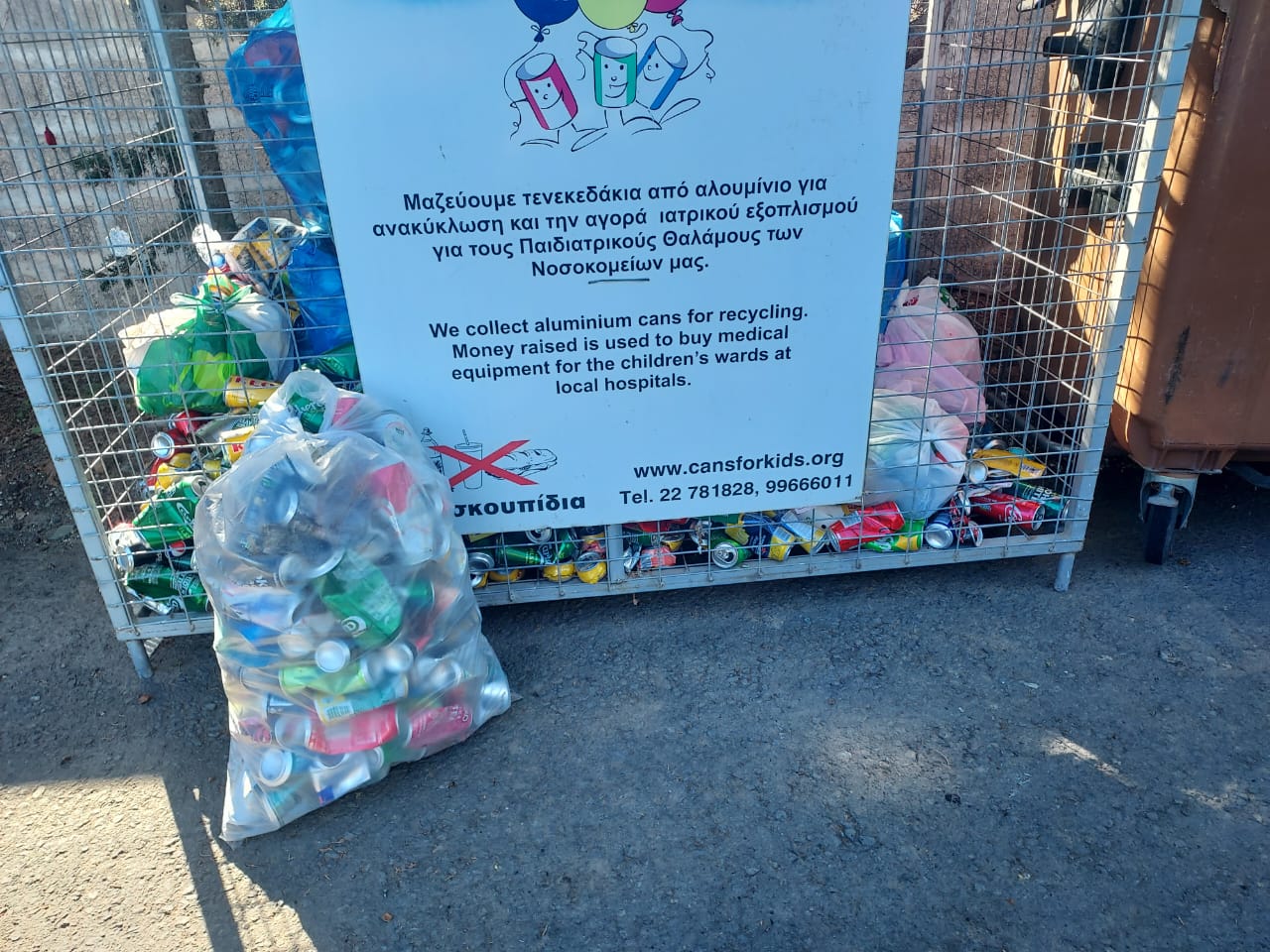
P.S. Since writing this, I have found another channel for reducing waste. Many of you might have noticed that fly-tipping sites are often the contents of a house or apartment (including bathroom fittings — mostly smashed -- and the contents of kitchen cupboards, often still with spices, sugar, and flour in their various tins. Very, very often there is bedding and towels. Rather than leaving these to rot, I pick them up, rinse them, and take them to either Paphiakos or PAWS. Both animal shelters always need such things for the animals. Another really common item is mop heads and mop buckets! And the shelters always need them, too.
Remember the pyramid: Refuse, Re-use, Reduce, Repair, Recycle, and finally, Rot!
In solidarity for less waste and a cleaner Cyprus!